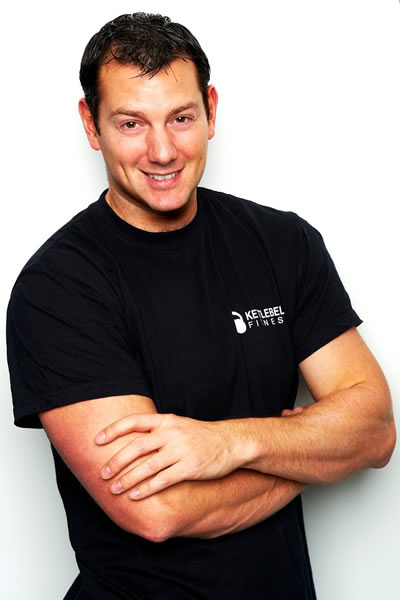This is by far the most common post I see from frustrated personal trainers and nutrition coaches, in the various Facebook groups and forums I frequent.
It typically goes like this:
My client is adamant they’re eating X amount of calories (usually a number that’s too low), tracking everything they eat but their weight hasn’t budged for the last 2 months.
In this blog post I will explain my theory as to why this happens so often. I’ll also get into why I think tracking calories for the vast majority of people is not the best approach and why I don’t have any of my nutrition coaching clients do it.
First, lets go over the reasons why people struggle with their weight. I’ll list them out:
- Inability to distinguish true hunger from cravings or boredom
- No awareness of hunger or fullness cues
- Inability to deal with unwanted emotions or thoughts in a healthy way
- Uneducated on the basics of nutrition such as what foods contain protein, starch, fat, fibre.
- Lack of cooking or food prep skills
- No awareness around the calorie cost of food
- Unclear on personal values and goals
Now you’ll notice I do mention calories in that list, I’m not completely against a calorie counting approach and I have used it with a few clients to great success, but those clients typically already had many of the habits and skills dialled in that I’m going to talk about in this post. Furthermore, that group of people is in the minority.
I do think its important for everyone to spend some time learning about calories, but if that’s the only metric your tracking, or the only thing your learning, don’t be surprised if you can’t keep your waistline where you want it.
If I had to organise that list above into header categories it would look like this:
Relationship with food (1,2,3)
Education/life skills (4,5,6)
Identity (7)
Arguably the most important one here is identity. This encompasses the following:
What is important to you.
Who you are/who you are not.
What you stand for.
Because when you truly know yourself and what’s important to you, this forms the operating system that you base all of your decisions on.
For example, if I’m saying self-respect is important to me, its something I value, then why would I say yes to eating out 4 times per week, eating desserts with every meal, and saying no to going to the gym or to joining a coaching program to work on myself?
That’s someone who has no clarity on why they do what they do. That person isn’t basing their decisions on their values.
The thing with values, is that whether you realise it or not, you have them. We all have them, they’re the things that we feel are important to us.
Here’s another example, have you ever made a decision to do something and deep down you didn’t want to do it?
In that situation you might have been about to engage in something that went AGAINST your values.
If it didn’t sit right with you, dig into why you feel that way and see what comes up.
But bringing this back to the original question, and why these calorie counters can’t figure out why they can’t lose weight eating 1500 calories…
Part 1 – The situation
its because their not eating 1500 calories. I know that’s obvious, but here’s why.
We make hundreds of decisions every day, including whether or not we’re going to eat that donut that was offered to us at work, or whether we say yes to a few beers after work.
Because we have so many things to think about during the day, these decisions (we could also think about them as behaviours) are generally made for us from the subconscious part of the brain.
Lets just take a moment to focus on that word – SUB – CONSCIOUS.
In other words, these behaviours we indulge in can easily go “under the radar”!
The problem is generally the frequency at which these behaviours occur. For many of us we’re having small bites of chocolate or some other small inconspicuous food item, that in the moment seems relatively harmless. When you look at this across the entirety of the week though, it can easily total up to be an extra 2000-3000 calories on top of your meals. Add in a couple of desserts and you’ve blown well over your required calories.
So the problem is one of awareness, but we also need to discuss what is driving you to eat in between meals, because its the food we eat in between meals thats largely responsible for weight gain in the first place.
The thing that largely drives people to eat in between meals is an inability to deal with unwanted emotions/thoughts, or they’re eating out of boredom, or they aren’t distinguishing between real hunger and cravings.
In the context of this question though, I think its mostly people who are eating their emotions.
This is part of being human, its normal, however, when we build awareness and learn how to notice and name our feelings we get to decide on how we respond.
This is what’s really going on with these clients who are supposedly tracking calories correctly and not losing weight. They’re being triggered by events in their life, often becoming upset or pissed off, this is creating unwanted emotions, which is driving them to eat high calorie/low nutrition foods (or drinks) to soothe the emotions. The regularity of this is going unnoticed, and the attached shame that goes along with it is hard to deal with so is instantly buried and or forgotten about.
Part 2 – The brain
Most of the time we operate from the pre-frontal cortex, this is the part of the brain where we make rational, good decisions from. If someone pisses us off or upsets us, this triggers a cascade of emotions which flood the brain and we immediately switch to the limbic part of the brain, which is where we make behavioural or emotional responses from.
If we don’t have the ability to let those emotions flow through us and subside, we can be very reactive.
Part of that reaction is to eat some sort of yummy food, which has been scientifically engineered to create dopamine release within the brain, this soothes over those unpleasant feelings from the preceding event and we momentarily feel better.
This can all happen in seconds.
So the argument with your spouse, boss, colleague, daughter/son, friend, etc
The test result, the bad family news, the idiot who cut you up on the way to work, etc etc
Every day your calm and collected demeanour will be tested.
Learning to allow unwanted emotions or thoughts to flow through us and to NOT RESPOND to them is a key skill not just for your waistline but for your ongoing emotional and psychological wellbeing.
This in my opinion is what is happening with these clients.
Because in 100% of cases, the calories are set low, and if they were TRULY eating that amount of calories, they’d be dropping fat and probably muscle, which would result in a lower scale measurement.
I’m fully aware of metabolic adaptation, but if you’re in a genuine caloric deficit, the weight still comes off. Go and read about the Minnesota Starvation study for further proof.
These people are reacting to situations, eating their emotions, forgetting it even happened, and/or feeling shame around the eating episode.
Or, simply tracking incorrectly and making errors in their calculations.
Part 3 – Communication and Trust
People are dealing with all sorts of situations in their lives that you can’t even imagine. Part of the coaching relationship is to build rapport with your clients, get to know each other and to build trust. The communication between coach and client is of paramount important, because unless the client feels they can trust their coach, they won’t open up about some of the key details that could prevent fat loss success from happening.
How many 36 year olds, are going to open up to their 25 year old, buff nutrition coach about their complete lack of intimacy and sex life with their partner?
Which is destroying their self confidence, building up that inner critic and ultimately driving them to eat as a coping mechanism.
Feelings of shame, embarrassment, and disgust are more common than you’d think. Hopelessness, unworthiness, not feeling like you’re enough, these are all very prevalent in diet culture and are exacerbated by the ongoing media onslaught as to how women should look.
Through effective communication, support and respect, the coaches role is to facilitate a safe space to discuss every possible topic that could come up. The coach needs to be able to sense into what is happening with their clients and ask the appropriate questions.
Part 4 – The solution
Estimates on food labels are by law allowed to be wrong by in either direction by 20%.
Apps that estimate how many calories we burn can be as much as 25% out.
The human body is a complex machine and how much you burn today can be different to how much you burn tomorrow. Its a constant moving target.
Furthermore if the only place you put focus on is counting calories, you’re missing the bigger picture.
Almost anyone can track calories for 4-6 weeks and lose weight. During that time you’ll likely gain much awareness around the calorie cost of food and where you get protein, carbs, fat, and fibre from.
But you won’t learn how to deal with unwanted emotions or thoughts, you won’t learn how to recognise hunger and fullness cues, you won’t learn how to respond not react, you won’t learn and understand what is important to you and how that is driving your eating or exercise decisions, and I could go on.
Counting calories has its place for the right people, but its not the answer for the majority. In my own coaching practice we do talk about calories, I might even suggest a client use My Fitness pal for a few days to gain some insight, but we’re also going to go into everything else that I covered in this post and ultimately we want to be making decisions based on our values and/or using eating skills like eating slow and stopping at 80% full, and/or using guidelines like plating balanced meals and not eating in between meals.
Peter Luffman is a personal trainer and nutrition coach based in the South west of the UK, and has been the owner/operator of Bristol Kettlebell club for 12 years. For coaching enquires, please use the contact form.

